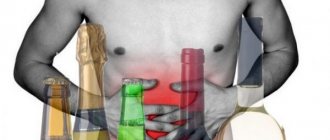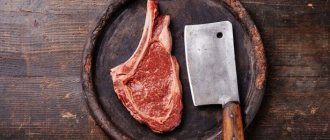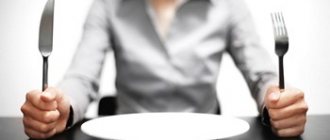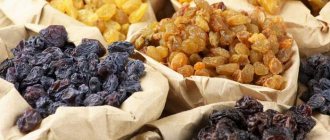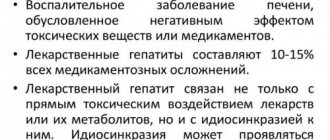Alcoholic gastritis is a disease with damage to the gastric mucosa associated with the destructive effects of large doses of alcohol. Men are more often affected by this disease; with age, the incidence of gastritis increases due to the weakening of the body's resistance to external harmful factors. Deaths occur at an advanced stage, which is supported by severe complications.
If you need emergency help, contact Alco-Center
Call the hotline +7 (495) 773-03-43 and our doctors will provide emergency care for intoxication of the body with breakdown products of alcohol and narcotic substances.
from 3,200 rub.
Withdrawal from binge drinking
Emergency body detoxification procedure
from 4,000 rub.
Coding
Urgent blocking of cravings for alcoholic beverages
from 68,000 rub.
Rehabilitation
Comprehensive rehabilitation giving 100% results
Causes
From the name of the disease it is clear that the main risk factor is drinking alcohol. Exposure to ethanol provokes an increased secretion of hydrochloric acid, which disrupts the normal functioning of the mucous membrane, and its protective abilities are reduced, and the rate of tissue restoration decreases. Alcohol, especially strong alcohol (vodka, cognac) forms changes on the lining of the stomach that look like burns. Also, in combination with alcoholism, the following factors provoke inflammation of the mucous membrane:
- Stress, psycho-emotional stress;
- Smoking;
- Disturbed diet, snacking on the go, abuse of salty and spicy foods. Such food is used as a snack when drinking alcohol.
- Medicines – NSAIDs (acetylsalicylic acid), glucocorticoids;
- Constant fatigue, overwork;
- Harmful factors in production;
- Excess weight;
- Heredity.
Elements of alcohol-containing products have a chemical irritant effect. Directly and indirectly affects the digestive organs. A mediocre effect is that ethanol has a detrimental effect on the central nervous system. As a result, the brain loses the function of regulating the protective mechanisms of intestinal tissue.
Can I drink beer?
The consumption of beer is allowed, but of a certain type. German scientists have concluded that regular consumption of unfiltered natural beer improves the well-being of patients suffering from inflammation of the gastric mucosa. It has been proven that beer:
- has a beneficial effect on the healing of mucous membranes, due to the high content of hops, which has an anti-stress effect;
- relieves pain;
- is a powerful antioxidant, therefore reduces inflammatory processes, reduces the risk of cancer;
- has an antibacterial effect and kills the bacterium Helicobacter pylori, the main culprit of the disease.
As a therapy, German scientists recommend drinking beer in the morning on an empty stomach. However, this drink should also not be abused due to the ethanol content, which irritates the mucous membranes. The consumption rate for men is 500 ml, for women – 330-400 ml.
Symptoms of alcoholic gastritis
It can be acute or chronic. An acute course occurs with a single dose of alcohol. A chronic course develops with long-term regular drinking of alcohol-containing liquids.
The disease manifests itself with malaise - loss of appetite, a feeling of heaviness in the stomach, weakness, a slight feeling of nausea, increased salivation, unpleasant taste in the mouth, headache, dizziness. Further, as it progresses, increasing pain after eating occurs in the epigastric region. Vomiting with food debris, mucus and bile impurities. After vomiting, the pain subsides and the condition returns to normal. Constant heartburn with burning in the chest area. Stool disorders - constipation or diarrhea - are added. Belching, in which the contents of the muscular organ for digestion of food are thrown into the mouth from the esophagus. Feeling of heaviness after eating. Constant thirst, from lost amounts of fluid after excretion of undigested food.
A paradoxical phenomenon is that after taking a dose of alcohol, the symptoms subside, but ethyl alcohol provokes an acceleration of the course of the disease. In addition to dividing into acute and chronic forms, there are also types of gastritis, but against the background of alcoholism. Damage to the gastric mucosa is characterized by increased or decreased acidity, this affects the difference in the signs of the disease. At first, the pain is increased, accompanied by heartburn and constipation. With low acidity, the pain is weaker, but occurs after eating, an unpleasant taste in the mouth, nausea in the morning and rumbling in the stomach with diarrhea.
The effect of ethanol on the gastrointestinal tract
When ethyl alcohol enters the body, it first of all comes into contact with the oral cavity, esophagus and the entire digestive system. The nature and severity of the toxic effect depend largely on the individual characteristics of the drinker. These may be genetic predisposition, age, gender, experience and frequency of use of the intoxicating potion. Passing through the esophagus, alcohol burns all internal layers, destroys and slows down digestion. For this reason, the food consumed is not poisoned for a longer time, which causes fermentation and associated unpleasant sensations.
Ethanol provokes dysfunction of special glands that produce gastric juice for the normal absorption of food. As a result, the content of hydrochloric acid increases, which has a destructive effect on the top layer of already inflamed walls.
Alcoholic beverages not only aggravate the condition of a patient with a previously established diagnosis, but can also provoke these damages. There are cases of the formation of alcoholic gastritis due to the abuse of ethyl-containing products. This pathological condition is accompanied by pain in the epigastric region, attacks of nausea and vomiting, heartburn and increased secretion.
Complications
The consequences of delayed treatment are complications that lead to irreversible deformations, which are more difficult to deal with than with the initial stages of development.
A person neglects to visit a gastroenterologist, but the symptoms subside, creating the impression that everything went away on its own. But in reality it is different, and this means the development of erosion processes on the walls. This quickly leads to bleeding, leading to death. Ulcers also form on the mucous membranes. This is a common cause of destruction of blood vessels. A sign of intestinal bleeding will be dark liquid stools, speckles of blood in the feces, and if the upper part of the intestinal tract is damaged, bloody, foamy vomit, the color of coffee grounds, will occur. Blood loss leads to iron deficiency anemia and vitamin B12 deficiency.
Gastritis can provoke inflammation of the pancreas, and a dangerous, painful process develops - pancreatitis. The gallbladder can also become inflamed - cholecystitis, the duodenum - duodenitis;
With a constant lack of appetite, anorexia develops, rapid weight loss, and exhaustion.
Also, without timely seeking medical help, there is a risk of developing oncological pathologies, especially with a burdened hereditary predisposition.
Diagnostics
Before treating the disease, a thorough examination is necessary. The doctor needs to be sure that this gastritis arose precisely from the consumption of alcoholic beverages, since there are other types of this disease. And it is necessary to distinguish it in order to prescribe precise therapy.
The examination begins with interviewing the patient, listening to his complaints, asking about heredity and frequency of drinking alcohol. Next, a visual examination of the appearance is performed - with gastritis, the skin is flabby, and upon palpation there is pain in the abdominal area.
Blood is donated to a clinical laboratory for a general blood test, where the process of inflammation increases the number of leukocytes and the erythrocyte sedimentation rate. An increase in ESR means blood thickening due to dehydration, which causes frequent vomiting and diarrhea. The causative agent of the disease, Helicobacter pylori, is detected in stool, blood or a breath test. During FGSD, using a probe with a camera, the condition of the mucous tissues of the stomach, esophagus and duodenum is assessed and material is collected for histological examination. Additionally, an ultrasound of the abdominal organs and an x-ray are prescribed.
Treatment
The main goal is to stop the acute condition and prevent complications. Mandatory treatment of alcohol dependence, the appointment of gentle nutrition and drug therapy. Medicines are symptomatic therapy aimed at relieving the manifestations of the disease:
- Painkillers, antispasmodics - to reduce pain and alleviate the condition, such as drotaverine, no-shpa, spazgan;
- Anti-inflammatory drugs – denol, pepto bismol;
- Antacids - Maalox, Gastal, Rennie. When the acidity content is higher than normal, they help get rid of heartburn and belching;
- Enzyme preparations for low acidity - limontar, prozerin;
- Gastroprotectors for the regeneration of mucous membranes;
- For severe dehydration, infusion of aqueous saline solutions combined with vitamins is used.
As a stimulating therapy in combination with medications, it is advisable to use folk remedies. Fresh carrot juice, cabbage juice and sage infusions promote healing of the lining of the gastrointestinal tract.
How to get rid of pain after drinking?
If a person cannot get out of a binge on his own, this is a reason to call a doctor at home. There is no point in risking his life and health; you need to seek help from professionals in the field of addiction medicine and psychiatry. The patient needs emergency drug treatment at home, which can be easily, quickly and inexpensively, and also completely anonymously organized by our Center for Healthy Youth.
A narcologist will help eliminate the serious condition of an alcoholic, alcohol intoxication, and withdrawal symptoms. It is abstinence that most often results from the occurrence of painful sensations in the human body after heavy drinking.
What to do if everything hurts after a long binge?
A dropper will help against alcohol intoxication. Infusions will speed up metabolic processes in the body, and with them the removal of toxins, as well as the addict from binge drinking. The dropper will help relieve a person of all symptoms of withdrawal syndrome, stop the destruction of internal organs and promote their regeneration. What will help in treating pain after binge drinking? Drug therapy and infusion of drugs directly into the blood of the addict.
What is infused into the body:
- nootropic drugs;
- vitamin complexes;
- analgesics;
- non-steroidal anti-inflammatory drugs;
- cleaning solutions;
- restorative drugs;
- antispasmodics, anticonvulsants, anticonvulsants;
- sedatives, sedatives;
- tranquilizers;
- medications that normalize heart function;
- drugs that normalize blood pressure;
- hepatoprotectors;
- enzymes;
- antioxidants;
- neuroprotectors.
Diet
Foods and diet affect the health of the digestive system. In acute cases, eating is not recommended for the first 2-3 days. Only drink plenty of warm mineral water without gas. Then they switch to kefir, liquid, semi-liquid porridges, vegetable soups, jelly, and low-fat dairy products. Avoid spices and carbonated drinks. Over time, they switch to a diet with less strictness.
During the period of remission, table number 2 is prescribed. This is a rational therapeutic diet for patients with intestinal pathologies. The main goal is to protect the mucous membrane, enrich the diet with protein, iron and vitamins. Limitations of products containing coarse fiber - whole grain cereals, bran, flour, flour products, nuts and legumes. The consumption of pure cow's milk is prohibited. Exclusion of spicy, salty, smoked, fried foods.
Before eating, food is prepared by boiling, steaming, stewing and baking. The products are crushed to reduce injuries to the digestive tract. Small meals up to 5 times and at least 1.5 liters of water per day.
Prevention and prognosis
Once treatment is started, especially in young people, it is not difficult and quick. The prognosis is favorable in the absence of severe complications, such as transition to oncology.
Prevention before the onset of a disease includes a healthy lifestyle - giving up bad habits, smoking, and giving up alcohol. Rational, regular, nutritious nutrition containing microelements and vitamins necessary for health, reducing to a minimum the need to use medications.
Secondary prevention, that is, after recovery, includes complete abstinence from alcohol-containing drinks, adherence to the prescribed diet, and examination by a gastroenterologist at least once every two years.
Thus, alcoholic gastritis is an easily avoidable disease. There are no moments in life's journey where it is under no circumstances possible to replace alcohol with non-alcoholic drinks. But even if this rule is violated, going to the hospital on time and ensuring a further healthy life after recovery is not difficult.
Author of the article: Yakovlev Evgeniy Anatolyevich
Narcologist, Candidate of Medical Sciences.
Content:
- What is alcoholic gastritis, its types and causes
- Symptoms and clinical picture
- Diagnosis of the disease
- Is it possible to drink alcohol with gastritis: destroying myths
- What alcohol can you drink if you have gastritis?
- General recommendations and treatment
Drinking alcohol during gastritis can provoke an exacerbation . During the acute period of the disease, you must stop drinking, and during the remission stage, you must strictly control the amount you drink. If you experience pain in the epigastric region after drinking alcohol, consult a narcologist immediately.

